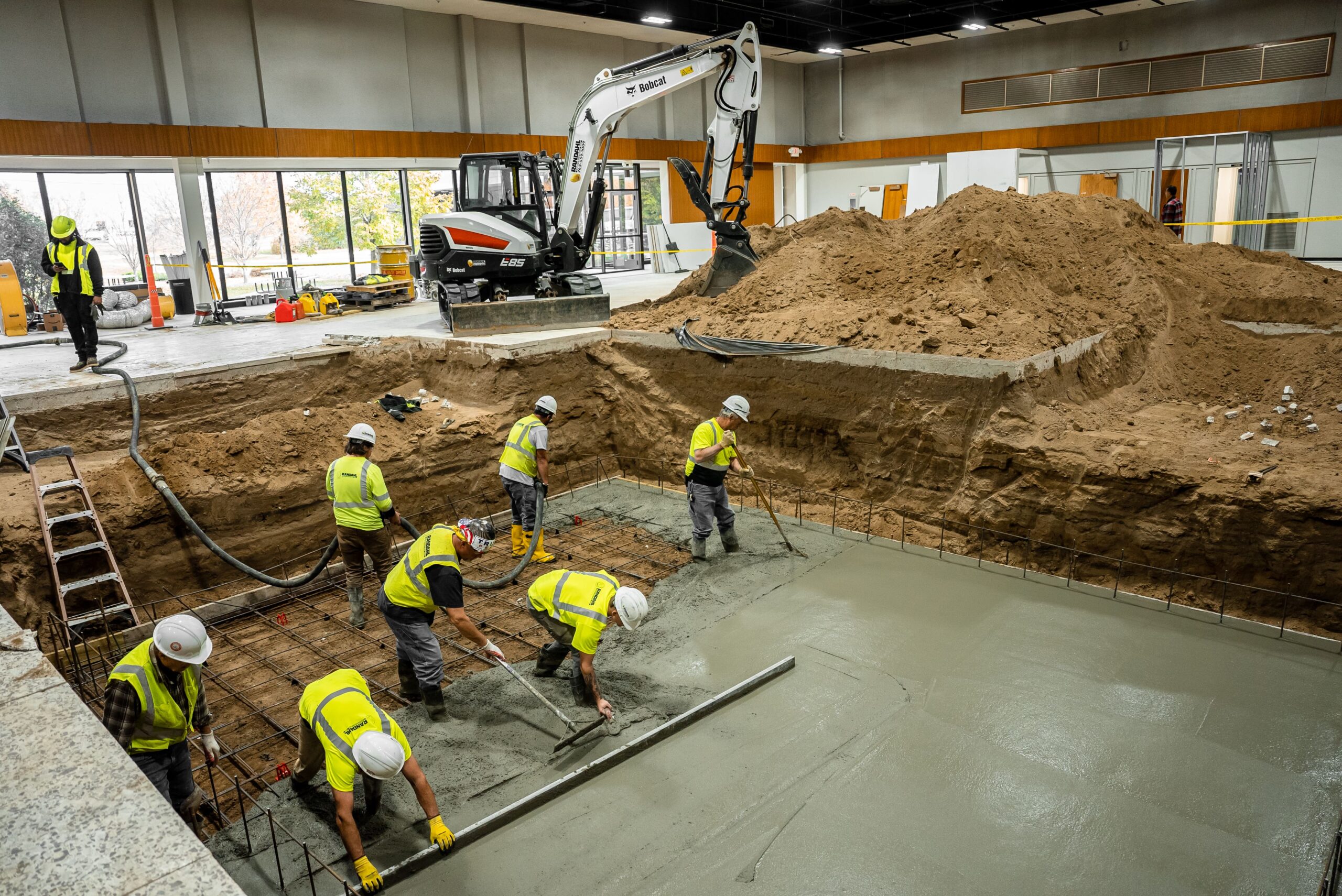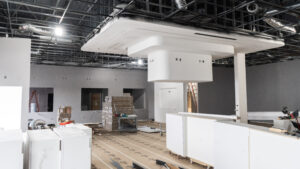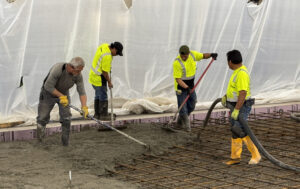When your commercial concrete project demands more than standard work, careful planning becomes the foundation for success. Whether you’re installing a high-performance warehouse floor, upgrading a decorative retail space, or pouring slabs requiring specific load-bearing capacities, understanding how to approach specialized concrete projects can save time, money, and headaches down the road.
1. Understanding What Makes Your Project "Specialized"
Not all concrete projects are created equal. Specialized requirements might include:
Performance specifications like high early strength for fast-track schedules, chemical resistance for industrial facilities, or enhanced durability for freeze-thaw environments.
Structural considerations including heavy load-bearing capacity, reinforced slabs with track system integration, precision thickness requirements, or custom expansion joint placement.
Functional requirements such as smooth trowel finishes for equipment operation, specific surface flatness tolerances, or integration with embedded systems and infrastructure.
Environmental factors like proper drainage grading, cold weather concrete placement protocols, or coordination with site-specific soil conditions.
Identifying these specialized needs early in the planning process allows your team to design appropriate solutions rather than adapting standard approaches that may fall short.

2. Start with a Detailed Assessment
Before beginning work, invest time in a comprehensive facility and project assessment. Existing substrate conditions significantly impact specialized concrete work—understanding the current slab condition, drainage patterns, and potential settlement issues helps determine the right approach and concrete specifications.
Consider the facility’s operational requirements carefully. A food processing plant needs different concrete properties than a warehouse, even if both are industrial spaces. Factor in traffic patterns, chemical exposure, temperature fluctuations, and moisture levels that your concrete will face over its lifespan.
Don’t overlook local building codes and industry standards. Specialized projects often require permits, inspections, and compliance with specific standards like ACI (American Concrete Institute) guidelines or industry-specific certification requirements.
3. Assemble the Right Team
Specialized concrete projects demand specialized expertise. Your concrete contractor should have documented experience with similar facility upgrades—ask for references and visit completed sites when possible. The concrete supplier matters tremendously; they need to understand your specifications and deliver consistent, quality materials that meet your project’s unique requirements.
For complex projects, consider bringing in a concrete testing laboratory early. They can help develop mix designs, perform quality control testing, and verify that the finished product meets specifications. A structural engineer should review designs for projects with significant load requirements or unusual structural demands.
4. Develop Precise Specifications
Vague specifications lead to disputes, delays, and disappointing results. Work with your team to document exactly what you need. Specify concrete strength requirements (compressive strength, flexural strength), admixtures and additives, finish requirements for surface flatness and smoothness, curing methods and timeframes, and testing protocols and acceptance criteria.
Put everything in writing. A detailed specification document becomes the roadmap for everyone involved and the benchmark for measuring success.
5. Plan for Quality Control
Specialized commercial concrete projects require rigorous quality control at every stage. Before pouring begins, verify that materials meet specifications, weather conditions are appropriate, and existing surfaces are properly prepared and forms are correctly installed. During the pour, monitor concrete temperature and slump, ensure proper placement techniques, and conduct required testing like cylinder samples for strength testing. After placement, implement proper curing procedures, protect surfaces from premature loading or damage, and perform final testing and inspections.
Build extra time into your schedule for quality control steps. Rushing through inspections or testing to meet deadlines often backfires when problems emerge later.
6. Account for Environmental Conditions
Concrete is sensitive to temperature, humidity, and weather. Specialized projects often have tighter tolerances, making environmental control even more critical. Cold weather concreting may require heated enclosures, insulated blankets, or accelerators. Hot weather precautions might include night pours, evaporation retarders, or cooling aggregates.
Have contingency plans ready for unexpected weather. A few days of delay is better than compromising the quality of specialized concrete that needs to perform for decades.
7. Budget Realistically
Specialized commercial concrete projects cost more than standard residential pours—and for good reason. Higher-grade materials, specialized equipment, additional testing, expert labor, and extended curing time all add to the bottom line. Build contingencies into your budget for unforeseen substrate conditions, specification changes, and extended schedules due to weather or testing delays.
The cheapest bid isn’t always the best value. A contractor experienced with your specific requirements may cost more upfront but deliver better results with fewer change orders and callbacks.
8. Communication is Key
Establish clear communication channels from day one. Schedule regular coordination meetings with all stakeholders, maintain detailed documentation of decisions and changes, and address concerns immediately rather than letting them compound. Specialized projects have less room for error, so everyone needs to stay informed and aligned.
9. Think Long-Term
Consider maintenance requirements during the planning phase. Some specialized finishes require specific cleaning protocols or periodic treatments. Will your facility staff understand how to care for the concrete properly? Factor in lifecycle costs, not just installation expenses. A more expensive specification that lasts longer with less maintenance often provides better value.
10. Learn from Experience
After project completion, conduct a post-project review. What went well? What would you do differently? Document lessons learned for future projects. This continuous improvement approach helps refine your planning process for the next specialized concrete project.
Getting Started
Planning a commercial concrete project with specialized requirements takes time, expertise, and attention to detail. But with thorough preparation, the right team, and a commitment to quality, you can achieve exceptional results that serve your facility for years to come.
At Randahl Construction, we understand that specialized commercial concrete projects in existing facilities require more than just technical expertise—they demand a partnership built on communication, quality, and attention to detail. Whether you’re replacing warehouse floors, upgrading heavy-duty industrial slabs, or installing high-performance surfaces, we’re here to help you navigate every step of the planning and execution process.
Ready to discuss your specialized commercial concrete project? Contact us today to learn how our experience and commitment to quality can bring your vision to life.




